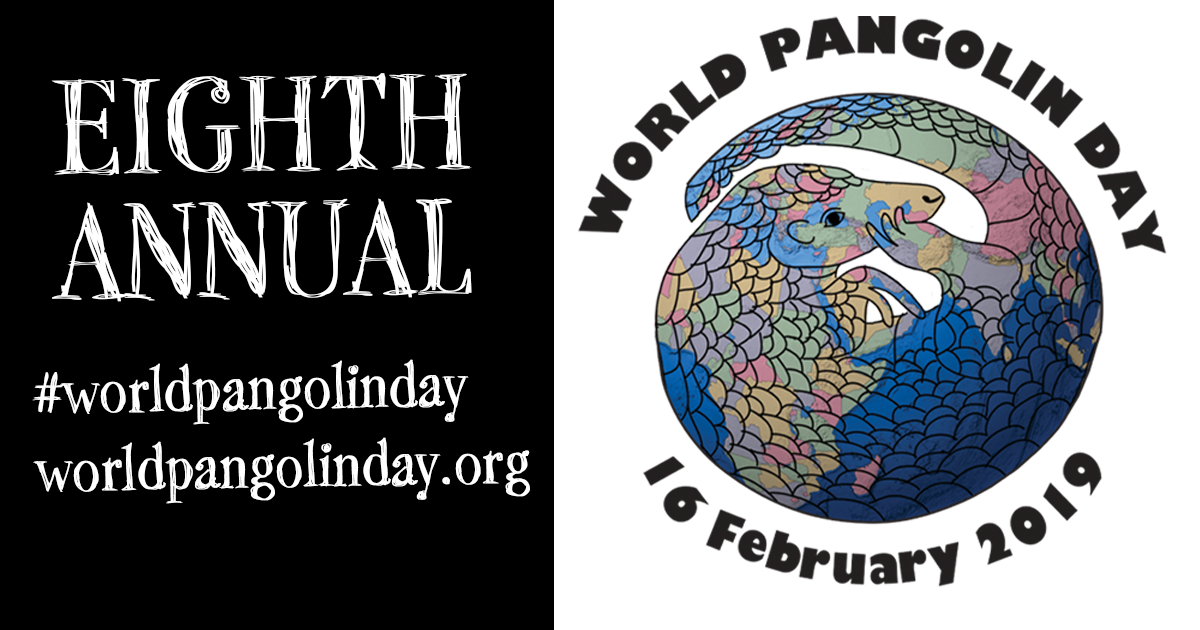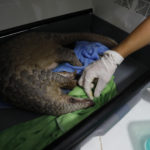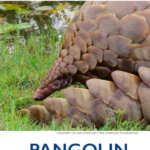
World Pangolin Day day is an opportunity for pangolin enthusiasts to join together in raising awareness about these unique mammals — and their plight. Pangolins are unfortunately one of the most heavily trafficked mammals in the illegal wildlife trade.
Everyone is invited and encouraged to participate in World Pangolin Day! The aim of World Pangolin Day is to draw as much attention to pangolins as possible, since they are still relatively unknown outside of Africa and Asia.
12 things you can do to help pangolins on World Pangolin Day (and beyond!):
- TWEET using the hashtag #WorldPangolinDay.
- LIKE the World Pangolin Day Facebook page.
- BLOG about pangolins on World Pangolin Day.
- SHARE pangolin information on your social media networks.
- CREATE pangolin art — paint, draw, sculpt.
- EDUCATE by giving a presentation about pangolins at school.
- SUPPORT organizations which are working to protect pangolins.
- HOST a World Pangolin Day party or event (post your photos on the World Pangolin Day Facebook page!).
- BAKE cookies or a cake in the shape of a pangolin (post your photos on the World Pangolin Day page!).
- REQUEST full enforcement of laws and penalties for smuggling pangolins (and other wildlife).
- INFORM traditional medicine prescribers that the use of pangolin scales is illegal (and there are no proven health benefits to consuming scales — they are made of keratin, just like fingernails and hair!).
- NOTIFY the authorities if you see pangolins for sale at markets or on restaurant menus, or if you know of anyone capturing or possessing pangolins.
About pangolins:
Pangolins, also known as scaly anteaters, are unique creatures that are covered in hard, plate-like scales. They are insectivorous (feeding nearly exclusively on ants and termites) and are mainly nocturnal. Their name, “pangolin”, is derived from the Malay word “pengguling”, which loosely translates to “something that rolls up”. Together, the eight species comprise their very own Order: Pholidota.
There are a total of eight species of pangolin on our Planet, and all pangolin populations are declining, due to the illegal trade for meat (it’s considered a delicacy in China and Vietnam) and scales (used in traditional Chinese medicine, despite no evidence of medicinal properties).
Four pangolin species live in Asia:
- Indian Pangolin (also called Thick-tailed Pangolin), Manis crassicaudata
- Phillipine Pangolin, Manis culionensis
- Sunda Pangolin (also called Malayan Pangolin), Manis javanica
- Chinese Pangolin, Manis pentadactyla
Four pangolin species live in Africa:
For more information or media inquiries, please contact me: rhishja (at) annamiticus (dot) com




![State of the Pangolin [Podcast]](https://annamiticus.com/wp-content/uploads/2016/08/BehindTheSchemesEpisode42-150x150.png)